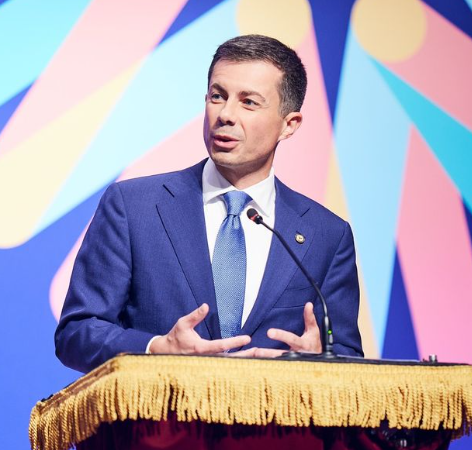Elon Musk’s public criticism of FEMA’s handling of the rescue efforts following Hurricane Helene has reignited a debate about the role of government agencies in disaster relief
While Musk’s allegations have garnered significant attention, Pete Buttigieg’s calm and diplomatic response has shown a willingness to address the situation and find solutions.
The controversy underscores the need for improved coordination between public and private sectors, especially as technological advances can offer new and faster ways to assist in disaster recovery.
Only time will tell how FEMA and Starlink’s relationship will evolve in the wake of this public dispute.
Pete Buttigieg’s journey from a young boy in South Bend to a prominent figure in American politics is a testament to his resilience, ambition, and commitment to public service.
His groundbreaking achievements, both as mayor and as Secretary of Transportation, have made a lasting impact on his community and the nation. Buttigieg’s story is not just about his political career; it is also a reflection of the evolving landscape of American politics, where diverse voices and experiences are increasingly valued.
His journey is far from over, and the impact he has made thus far suggests that he will remain a significant figure in American politics for years to come.
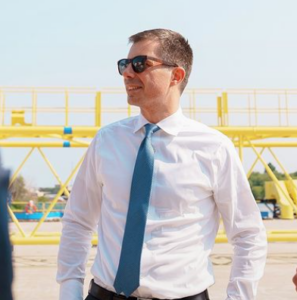
Table of Contents
Pete Buttigieg: Elon Musk Criticizes FEMA’s Response
On Friday, October 4, Tesla CEO and SpaceX founder Elon Musk took to Twitter to voice his displeasure over how the Federal Emergency Management Agency (FEMA) handled rescue operations in areas affected by Hurricane Helene.1
His criticism centered on the agency’s alleged interference with private efforts, particularly those by his Starlink team, to deliver aid and communication support to the disaster-stricken regions.
Musk’s tweets sparked widespread discussion, both in support of and against his claims. The controversy deepened when United States Secretary of Transportation Pete Buttigieg weighed in on the situation, offering his perspective on the matter.
In this article, we’ll explore the sequence of events, the accusations Musk levied against FEMA, Buttigieg’s response, and the public’s reaction.
Tonight Tim Walz displayed his characteristic decency and passion for making everyday life better for Americans. Even when facing polished falsehoods, he reminded us why the future will be so much better under Kamala Harris’ leadership than a return to the chaos of the Trump era.
— Pete Buttigieg (@PeteButtigieg) October 2, 2024
Elon Musk’s Accusations Against FEMA
Elon Musk’s frustrations were clearly visible in his initial tweet on October 4, when he shared a screenshot from someone reporting on the situation involving Starlink engineers.
According to the report, FEMA had allegedly obstructed their efforts to send aid to the regions affected by Hurricane Helene.
The screenshot accompanied a scathing comment from Musk, in which he accused FEMA not only of failing to provide adequate help to the victims of the hurricane but also of actively blocking those who were attempting to offer assistance. In one of his tweets, Musk wrote:
“@FEMA is not merely failing to adequately help people in trouble, but is actively blocking citizens who try to help! The big issue is FEMA is actively blocking shipments and seizing goods and services locally and locking them away to state they are their own…”
This claim resonated with many of Musk’s followers, who have long been vocal critics of government agencies’ disaster response efforts. Musk’s assertions fueled further concerns about FEMA’s ability to effectively manage disaster relief, raising questions about the transparency and coordination between federal agencies and private entities during emergency situations.
Starlink’s Role in Disaster Relief
- Musk’s complaints regarding FEMA’s handling of Hurricane Helene came against the backdrop of SpaceX’s ongoing efforts to provide aid to disaster-stricken areas through Starlink, its satellite internet service.
- Starlink has been deployed in various disaster relief efforts across the globe, offering communication support to regions where traditional infrastructure has been knocked out by natural disasters.
- In the case of Hurricane Helene, Starlink was reportedly positioned to deliver crucial aid in the form of internet connectivity, which can be vital for rescue teams, medical personnel, and local authorities coordinating relief efforts.
- Musk emphasized that his engineers were on the ground, attempting to help, but FEMA’s obstruction was preventing the rapid deployment of services.
- Starlink’s role in disaster relief has generally been praised for its ability to provide fast, reliable internet in remote and devastated areas.
- This makes Musk’s claims particularly concerning, as they suggest a breakdown in cooperation between FEMA and private organizations that could otherwise enhance relief efforts.
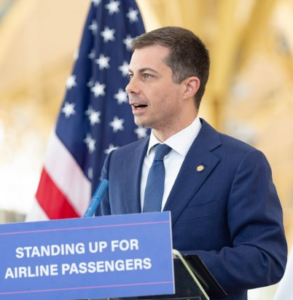
Pete Buttigieg’s Response on The Criticism
On October 5, just one day after Musk’s tweets criticizing FEMA, United States Secretary of Transportation Pete Buttigieg responded to the situation via Twitter.2
Buttigieg addressed one of the specific claims Musk had made — that the Federal Aviation Administration (FAA) was blocking legitimate rescue and recovery flights.
In his response, Buttigieg refuted the idea that the FAA was interfering with rescue efforts, stating:
“No one is shutting down the airspace and FAA doesn’t block legitimate rescue and recovery flights. If you’re encountering a problem give me a call.”
Buttigieg’s direct offer to Musk to contact him for further clarification was seen as a positive step toward addressing any potential miscommunication. It also highlighted the complexity of coordinating disaster relief efforts between various federal agencies, private companies, and local governments.
Musk’s Appreciation for Buttigieg’s Response
Musk’s reaction to Buttigieg’s tweet was surprisingly diplomatic. Despite the heated nature of his initial accusations against FEMA, Musk thanked Buttigieg for being responsive. In a follow-up tweet, Musk wrote:
“Thank you Pete for the quick response! Appreciate you being willing to address these issues head-on.”
Musk’s gratitude toward Buttigieg’s prompt reply seemed to tone down the intensity of the situation, at least for the moment.
However, it didn’t completely quiet the ongoing debate about whether FEMA was mishandling the situation and actively preventing private entities from contributing to the relief efforts.
Public Reactions and Controversy
- As soon as Musk’s initial tweets went live, they sparked a flurry of reactions from the public.
- Many of Musk’s supporters rallied behind his criticisms of FEMA, agreeing that the agency had a track record of inefficiency and bureaucratic red tape that hindered timely disaster response.
- Social media discussions began trending with hashtags like #FEMAFail and #StarlinkHelps, as users expressed their frustrations with the federal agency.
- On the other hand, some users were skeptical of Musk’s claims, pointing out that his tweets lacked specific details and concrete evidence.
- They accused Musk of exaggerating the situation for dramatic effect and using his platform to amplify issues that might not have been as widespread as he portrayed.
- Others reminded the public that coordinating disaster relief efforts is a complex process, and FEMA’s decisions could have been based on factors Musk might not have been aware of.
- Buttigieg’s involvement, however, seemed to have a calming effect on the more critical voices.
- His response reassured some that federal agencies were indeed working toward a common goal and that any issues would be resolved through communication rather than public disputes.
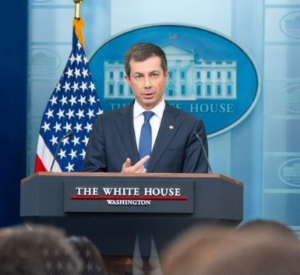
Also Read: Elon Musk vs Mark Zuckerberg: The Potential Showdown in Dana White UFC Apex
FEMA’s Role in Disaster Management
FEMA has long been the federal agency responsible for coordinating disaster relief and recovery efforts in the United States.3
Its mandate includes distributing aid, organizing rescue efforts, and ensuring the safety of those affected by natural disasters like hurricanes, floods, and earthquakes.
However, FEMA has often been criticized for its slow response times and the bureaucratic hurdles that can delay aid to those who need it most.
The agency has been the subject of scrutiny following major disasters, such as Hurricane Katrina in 2005 and more recently during the response to hurricanes in Puerto Rico and Texas.
Musk’s criticisms of FEMA fit into this broader narrative of dissatisfaction with how disaster relief is managed in the U.S.
His claims that FEMA was “actively blocking” private efforts have resonated with those who feel that private-sector involvement could streamline aid delivery and reduce the inefficiencies often associated with large federal agencies.
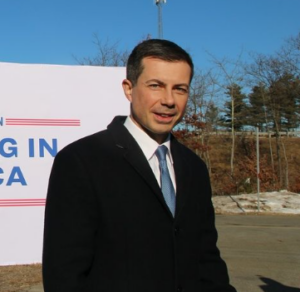
The Intersection of Private and Public Sector in Disaster Relief
Musk’s dispute with FEMA also raises important questions about the role of the private sector in disaster relief efforts. In recent years, companies like SpaceX, Amazon, and Google have offered technological solutions to improve communication, deliver aid, and help rebuild infrastructure in disaster-hit regions.
The tension between FEMA and Starlink suggests that while private companies can offer innovative solutions, there may be friction when it comes to integrating their efforts with those of federal agencies.
FEMA, for example, is bound by strict regulations and protocols that might not align with the fast-moving, flexible approach taken by tech companies like SpaceX.
At the same time, collaboration between the private and public sectors can yield powerful results. For instance, during the COVID-19 pandemic, private companies played a crucial role in vaccine distribution and data tracking.
In disaster relief scenarios, coordination between FEMA and companies like SpaceX could similarly amplify the impact of their efforts.
Will FEMA and Starlink Collaborate?
Despite the criticisms leveled by Musk, there’s hope that FEMA and Starlink, along with other private companies, can find common ground to work together more effectively in future disaster scenarios.
The rapid deployment of technology, such as satellite-based internet, can be a game-changer for regions devastated by natural disasters, and a partnership between federal agencies and tech companies could maximize the benefits.
For now, it remains to be seen whether Musk’s accusations will lead to any changes in how FEMA coordinates with private entities. As disasters continue to grow in scale and frequency, fostering cooperation between all stakeholders will be critical to ensuring that aid reaches those who need it most.
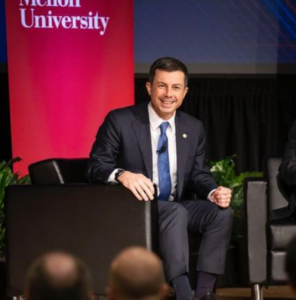
Pete Buttigieg: Who Is He?
Early Life and Education
Pete Buttigieg was born on January 19, 1982, in South Bend, Indiana. His upbringing played a significant role in shaping his character and ambitions.
Both of his parents were professors at the prestigious University of Notre Dame, deeply influencing his academic journey and worldview.
His father, an immigrant from Malta, taught literature, while his mother focused on linguistics. This intellectual environment fostered a love for learning in Buttigieg, who excelled in school from an early age.
Buttigieg attended Harvard University, where he graduated in 2004 with a bachelor’s degree in history and literature.
His time at Harvard enriched his understanding of political structures and historical contexts, laying the foundation for his future career in public service.
He was a diligent student, participating in various extracurricular activities and honing his leadership skills. After Harvard, Buttigieg’s ambition led him to the University of Oxford, where he became a Rhodes Scholar.
At Oxford, he earned a bachelor’s degree in philosophy, politics, and economics from Pembroke College in 2007.
This prestigious scholarship not only provided him with an exceptional education but also exposed him to diverse perspectives on governance and society.
Early Career and Military Service
Following his studies, Buttigieg embarked on a professional journey that combined consulting and public service.
He joined McKinsey & Company, a management consulting firm based in Chicago, where he worked for several years.
His role at McKinsey allowed him to develop a keen understanding of business operations, strategy, and problem-solving, which would later inform his approach to public policy.
In 2008, Buttigieg transitioned into politics, serving as an adviser to Jill Long Thompson, a Democratic candidate in the Indiana gubernatorial race.
Although Thompson ultimately lost the election, this experience marked Buttigieg’s formal entry into the political arena.
Shortly thereafter, in 2009, he took a significant step in his commitment to service by enlisting in the U.S. Navy Reserve.
He served as an intelligence officer, a role that demonstrated his dedication to his country and his willingness to take on challenging responsibilities. Buttigieg’s military service lasted until 2017 and included a deployment to Afghanistan in 2014, where he worked with intelligence and strategic operations.
